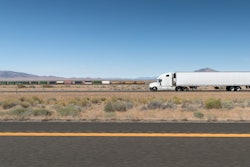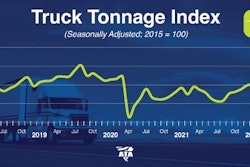While the overall effect a national railroad strike might have on the supply chain could mirror that of a natural disaster or another pandemic depending on how long it lasts, its influence on road freight is likely to be swift and variable by lane and commodity type.
Railroads have already taken preliminary action to wind down shipments of hazardous and bulk materials to avoid those loads being left unattended or unsecured in the event of a work stoppage Friday, but as of Wednesday morning, "we're not seeing any noticeable impact on hazmat load posts or load posts in general," said Dean Croke, principal industry analyst at DAT Freight & Analytics.
Heniff Transportation (CCJ Top 250, No. 71) President and Chief Commercial Officer Wes Stone said Wednesday that even if a strike does not materialize, "the railroads’ preliminary actions to halt hazmat and food products will be extremely disruptive for our company and its many customers," adding Heniff – one of the nation's largest liquid bulk haulers – has already initiated contingency discussions with its customers.
Croke said there has been some truckload rate movement on Norfolk Southern lanes, like Norfolk to Chicago, adding that "if we get to 12:01 a.m. this Saturday, we'll see an immediate impact on the spot market regarding load posts and rate movement."
With a potential strike kicking off headed into a weekend, Jason Miller, Interim Chairperson and Associate Professor of Supply Chain Management in the Department of Supply Chain Management, Eli Broad College of Business at Michigan State University, said a widespread truckload impact could be muted for the time being.
"Luckily, Friday through Sunday are days with fewer shipments than Monday through Thursday," he said, "so if we can get things worked out before Monday, I don't see much effect happening."
When the calendar turns to next week and the duration of a work-stoppage begins to become more clear, Miller added, "I would think we would see dry van rates start to go up pretty quickly from the ports as shippers transition freight from intermodal to dry van. My hunch is we won't see other shippers start to make the transition to truck, to the extent they can, until it becomes obvious we are in for a substantial strike."










